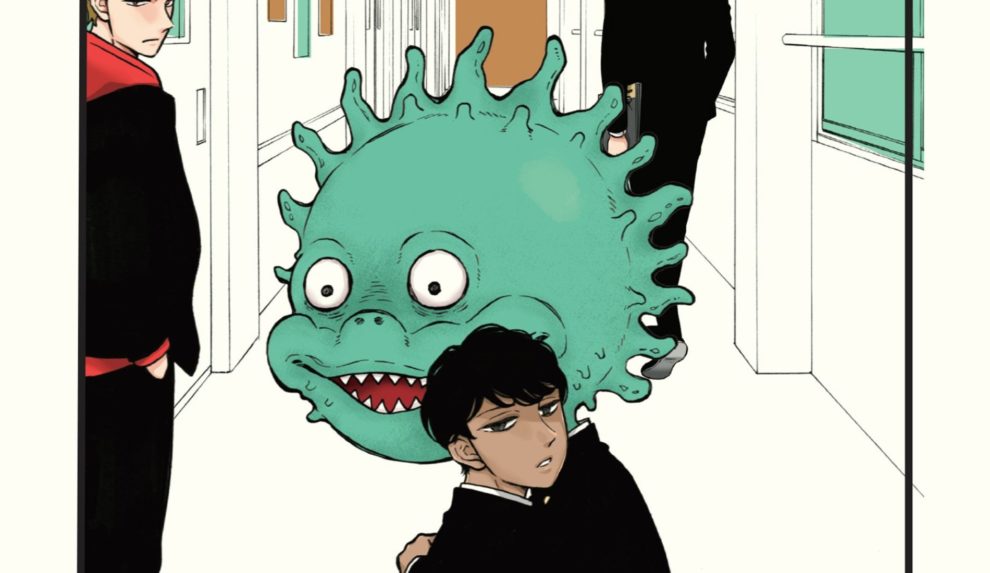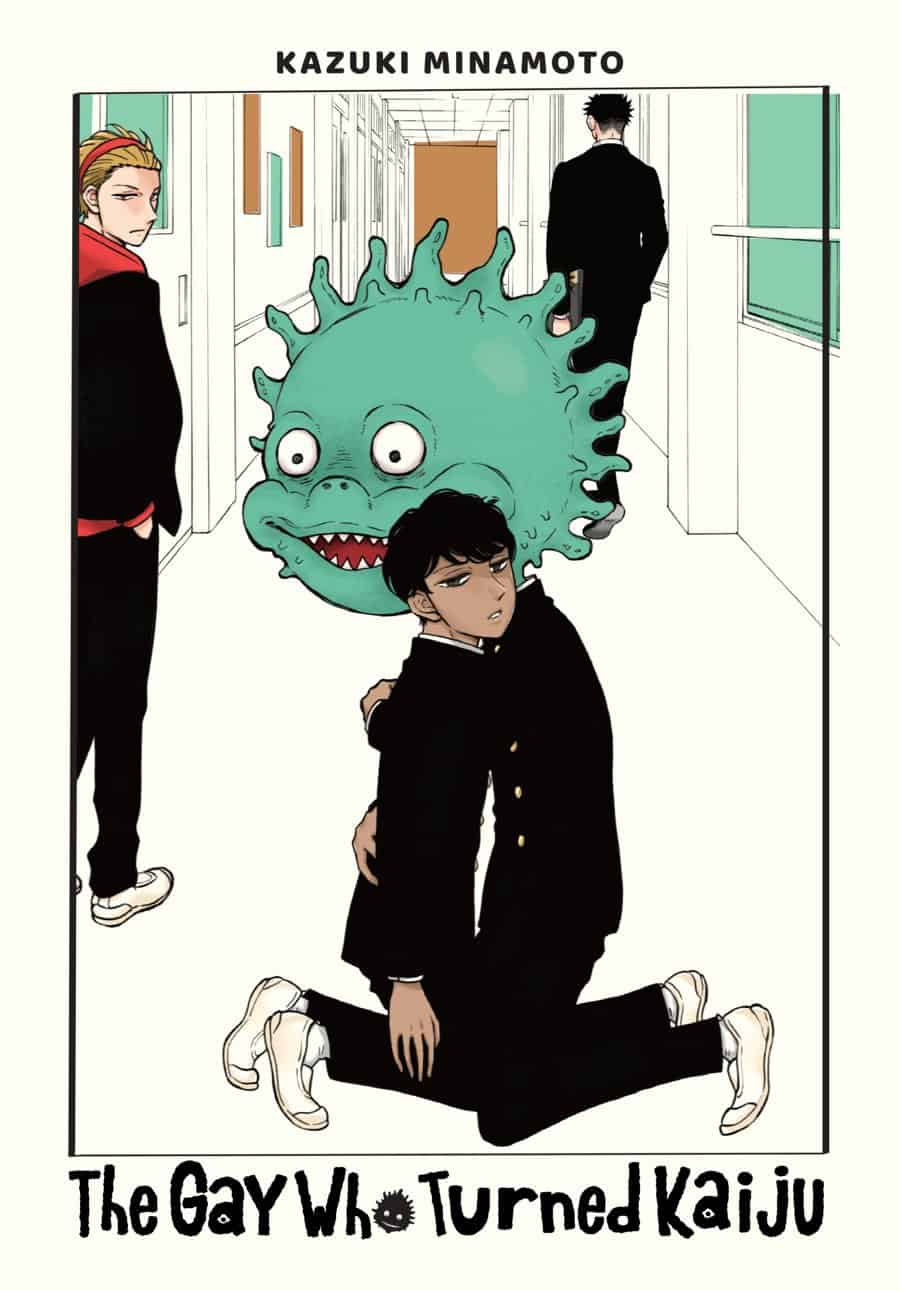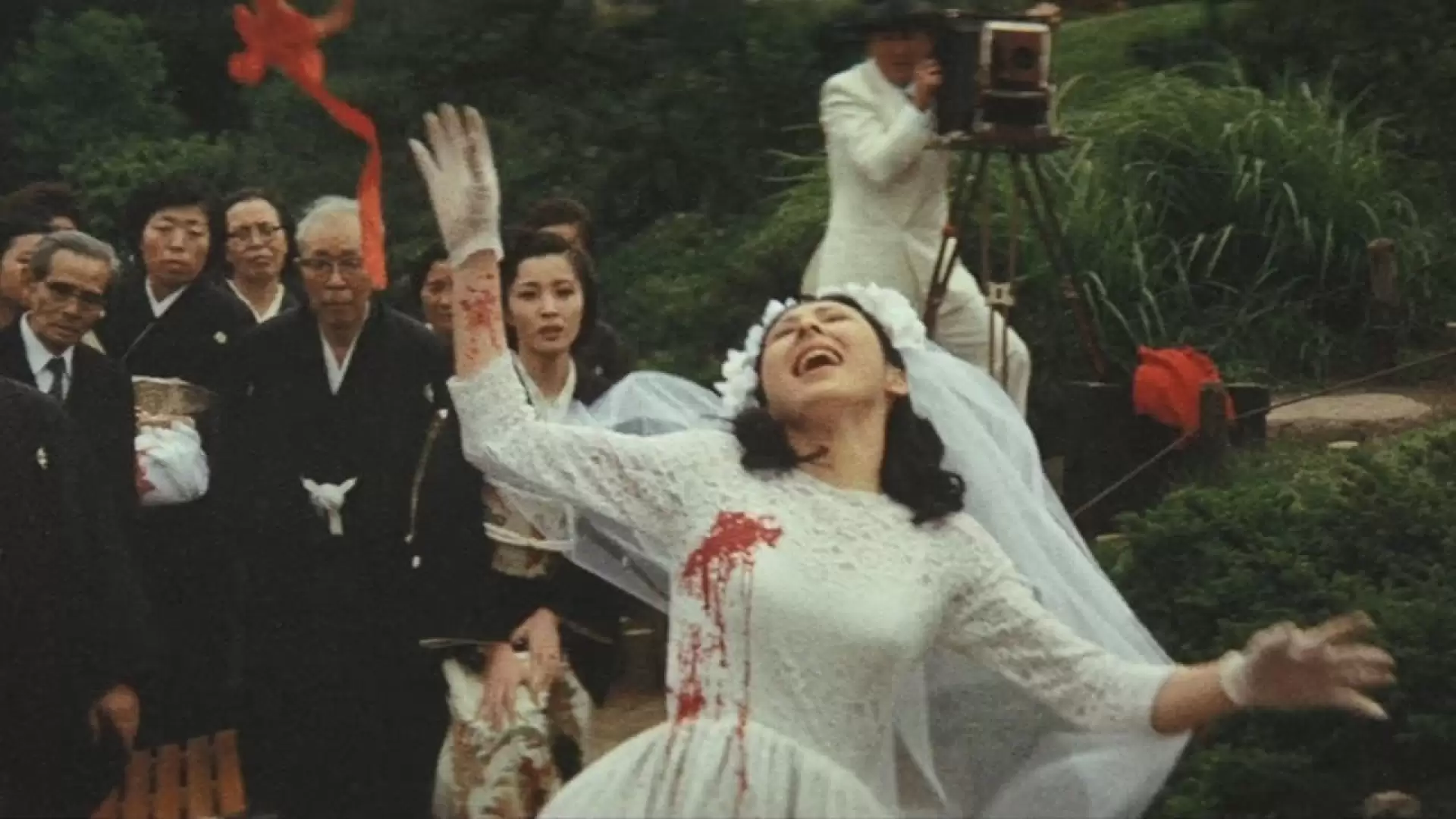“Bullied for being gay, teenager Takashi Arashiro wishes he could just be somebody else—but who could predict he'd morph into a giant-headed sci-fi creature?! Takashi's tumultuous emotions become the catalyst for personal and social exploration of the LGBTQ experience in this quirky, profound manga from prolific BL author Kazuki Minamoto.” (Yen Press)
Kazuki Minamoto's “The Gay Who Turned Kaiju” is a peculiar entry into the LGBTQ genre. Leaning on its comedic stylings, the book has a defined and quirky visual presence but in addressing actual issues of bullying and identity, the series becomes muddied. As such, measuring the book's success and its ability to connect to an audience is likely to vary drastically.
Notably, the effectiveness of the messaging is debatable, hovering into a gray area that makes the work slightly unfavorable based on your feelings about appropriate actions to bullying. Furthermore, there is a misdirected claim that bullying of a gay individual comes at the hands of those who are, themselves, closeted. Not to say this is never the case, but for a character in a book to seek freedom of judgment for his orientation, he is quick to harass others in regard to theirs. Consequently, none of the characters come across as empathetic, which is a failure for a book that aims to evoke that very sentiment.
This is most easily exemplified in Takahashi's use of sexual discomfort to push forward his own point, including forcibly grabbing other men's genitalia. Regardless of the reasoning, this is a rather vile way to act and it, instantly makes Takashi unlikeable. There is no denying that this book is a revenge fantasy, and whether readers are comfortable with that will be vital in whether they enjoy the work or not.

However, where Kazuki Minamoto's work, undeniably, shines is in the visual presentation, particularly with comedy that gives the themes a slightly silly tinge. The kaiju design itself is a wonderfully bizarre large-headed monstrosity that switches between menace, goofy and troubled seamlessly. Consequently, any interactions that Takashi has with those around him are humorous in seeing others struggle to grasp just what exactly the odd creature is. In this regard, Kazuki Minamoto succeeds in capturing the sense of isolation and feeling of ostracization that the character feels, it is just unfortunate this is not as well executed in the story itself.
With its entertaining visual direction, the book is a perfect fit for the larger-sized omnibus edition through “Yen Press”. While it lacks any color pages, or additional content, it is still a well-presented release that makes the physical a joy to own. And while it may sound like a simple appeal, the title of the book on the shelf is bound to induce the odd giggle or questioning look from others–novelty is often underestimated when it comes to what people will add to their collection.
Kazuki Minamoto's “The Gay Who Turned Kaiju” has some inconsistency in its messaging which will restrict the readership of an already niche genre. That is not to say other elements don't work in the book, and the comedy is wonderfully silly with the art being the same, but with Yen Press having published an abundance of remarkable LGBTQ content this year (“New York, New York“, “I Want To Be A Wall“, “Catch These Hands!” and “Mizuno and Chayama” to name but a few) “The Gay Who Turned Kaiju” feels misplaced. Still, the positive elements of the book are enough to keep things upbeat and entertaining, and readers who have no issues with the moral gray area (revenge fantasy) will likely find the series rewarding.
















